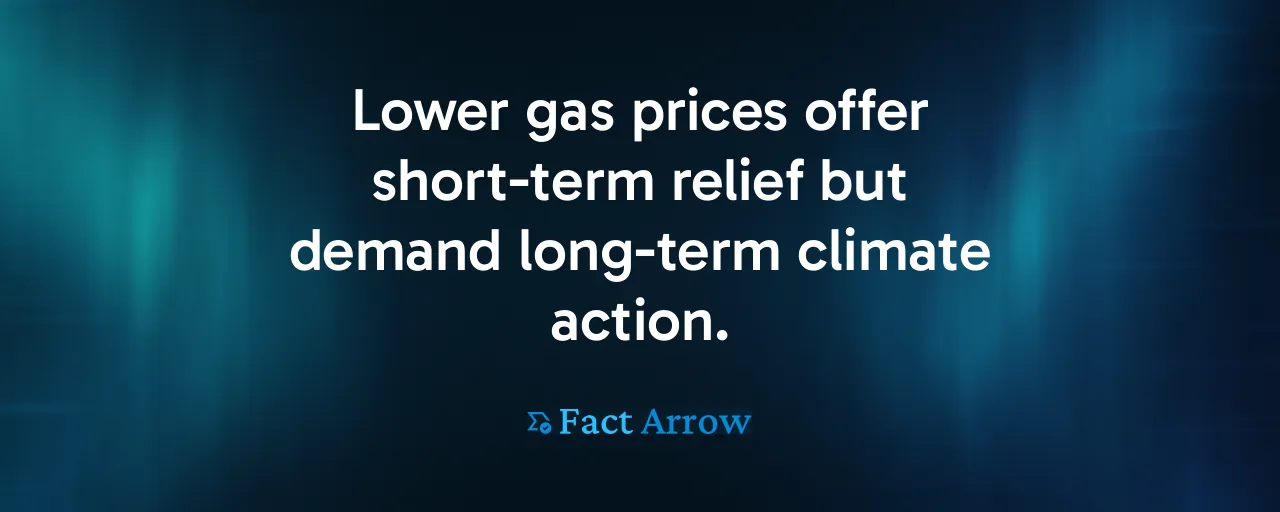A Welcome Break at the Pump
Gasoline prices across the United States have tumbled to their lowest Independence Day levels since 2021, with a national average hovering near $3.15 per gallon. From Columbus, Ohio, to San Luis Obispo, California, drivers are seeing relief, with some states dipping below $3.00. The White House has celebrated this trend, attributing it to economic policies while independent analysts highlight global market dynamics. For families pinching pennies, cheaper fuel means more room for groceries or school supplies. This moment of relief prompts a deeper question about how to ensure affordable energy and transition away from a fossil fuel future.
The price drop, while real, stems largely from global factors, like stable crude oil markets and smooth refinery operations, rather than any single policy. Motorists in Birmingham, Alabama, now pay 43 cents less per gallon than last year, and similar trends ripple across Michigan, Virginia, and beyond. This savings, estimated at $13 billion annually for every 10-cent drop, offers a tangible boost to working-class households and rural drivers. However, the celebration feels fleeting when considering the broader context, as reliance on oil leaves us vulnerable to price swings, as seen in 2022 when costs soared past $5 per gallon.
The Hidden Costs of Cheap Fuel
Lower gas prices carry risks that hit hardest in communities already bearing the brunt of pollution. Affordable fuel often spurs more driving, increasing vehicle emissions that worsen air quality in urban areas. Studies show that a 10-cent price drop can lift real disposable income slightly, but it also nudges up vehicle-miles-traveled, undermining efforts to cut greenhouse gases. Environmental justice advocates point out that expanded drilling, often tied to these price declines, disproportionately harms marginalized neighborhoods near extraction sites, where air and water quality suffer.
Another concern is the slowdown in cleaner alternatives. Electric vehicles (EVs), now making up over a quarter of new global car sales, face a tougher sell when gas is cheap. Public transit systems, already underfunded, struggle to compete with the lure of affordable driving. The International Energy Agency warns that prolonged low fuel prices could stall the shift to renewables, locking in emissions for decades. For policymakers focused on long-term stability, this moment calls for a strategic pivot in energy policy.
Steering Toward a Cleaner Horizon
The path forward lies in policies that secure affordability while breaking oil's grip. Advocates for sustainable energy call for stronger EV incentives, like tax credits and rebates, to make cleaner cars accessible to all. Investments in public transit, from buses in Chattanooga to rail in Syracuse, can reduce reliance on personal vehicles, cutting costs and emissions. These steps align with a vision where energy security means both freedom from volatile fossil fuels and lower prices at the pump.
Historical data backs this approach. After the 2022 price spike, targeted releases from the Strategic Petroleum Reserve helped stabilize markets, showing how proactive measures can shield consumers. Academic research also links fuel economy standards to long-term savings, with every mile-per-gallon improvement shaving billions off household fuel bills. By pairing these with windfall-profit taxes on oil companies during price surges, lawmakers can fund transit and EV infrastructure without burdening taxpayers.
Balancing Today's Relief With Tomorrow's Promise
The current price dip offers a chance to rethink energy policy, but it requires bold action. State and federal leaders can index fuel taxes to inflation, dedicating surplus funds to EV charging networks that serve rural and urban drivers alike. Refinery upgrades, if paired with stricter methane controls, can maintain supply while cutting pollutants. Transparency tools, like real-time pipeline outage reports, empower consumers to avoid price gouging. These ideas bridge immediate needs with a sustainable future, ensuring no one is left behind.
Communities stand to gain from this shift. Working families benefit from stable energy costs, while cleaner air improves health outcomes in cities like Detroit and Gainesville. Freight-dependent regions, reliant on trucking, can leverage lower logistics costs to grow local economies, but only if paired with investments in electrified transport. The evidence is clear: a balanced approach, grounded in data and fairness, can deliver both affordability and progress.
A Road Worth Traveling
Today's cheaper gas offers a reprieve, but it does not provide a long-term roadmap. It eases the strain on household budgets and fuels summer road trips, but its benefits fade against the backdrop of climate risks and market volatility. The real opportunity lies in using this moment to invest in a future where energy is clean, stable, and equitable. By prioritizing EVs, transit, and smart taxes, policymakers can build an economy that works for everyone, extending benefits beyond just those filling up at $3.15 a gallon.
The stakes are high, but so is the potential. Families in Rochester, Minnesota, and West Palm Beach, Florida, deserve energy policies that don't swing with global markets. Advocates for change, from environmental groups to urban planners, are pushing for solutions that deliver now and endure. The aim is to create a system where affordability and sustainability go hand in hand, rather than simply trading one cost for another.
As drivers enjoy this summer's low prices, the challenge is to look beyond the pump. A cleaner, fairer energy future is within reach, but it demands action today. By choosing policies that prioritize people over short-term wins, America can pave a road that leads to lasting prosperity for all.
